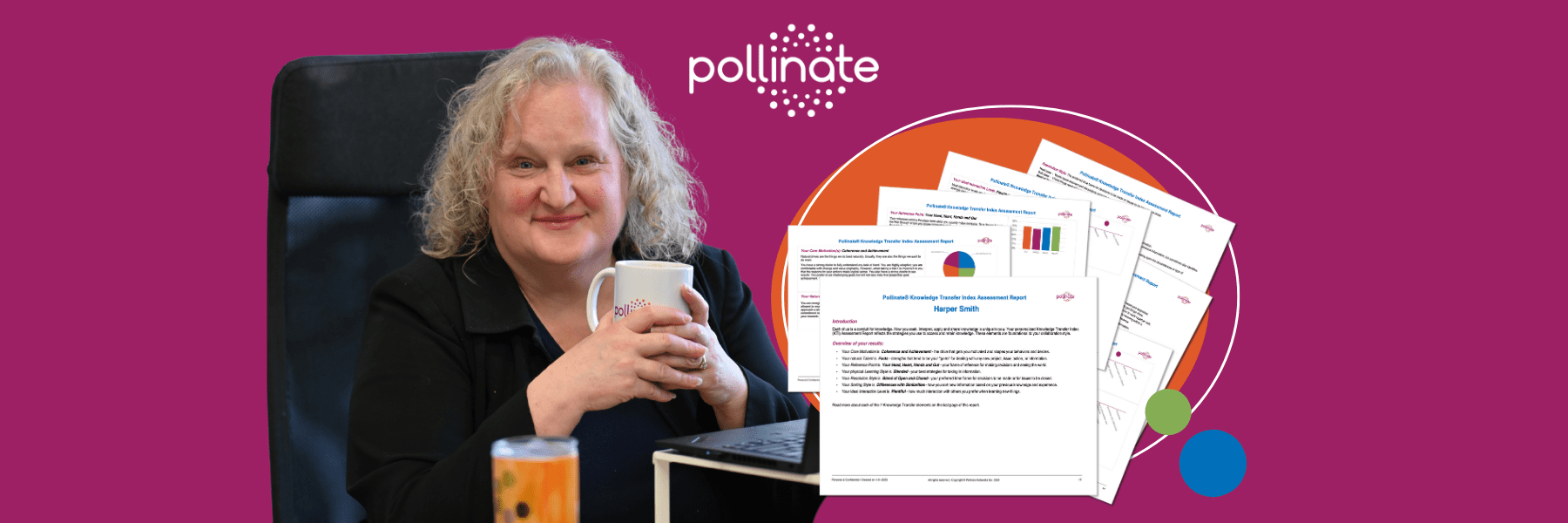
Invest in Mentorship to Navigate Complexity
The world of work has always been complex, but the pace of change today is staggering. Learning and talent development leaders are tasked with managing uncertainty, fostering resilience, and preparing their organizations to adapt. One of the most powerful tools in this effort? Mentoring.
When it comes to navigating today’s challenges, mentorship programs go beyond traditional learning models by connecting individuals with guidance, support, and actionable insights. Mentoring isn’t just a professional development tool; it’s a blueprint for navigating complexity, creating clarity, and empowering teams for success.
This blog explores why mentoring is indispensable for managing complexity and provides actionable insights into areas where mentoring makes a measurable difference.
Cutting Through the Noise with Clear Goals and Social Support
Managing complexity starts with clarity. More often than not, professionals find themselves overwhelmed by competing priorities, unclear objectives, and the pressure to perform. This is where mentoring shines.
Goal Setting: Mentors help mentees define their objectives with precision. By breaking down ambiguous aspirations into tangible goals, mentoring provides clarity and purpose.
Social Support: Beyond setting goals, mentors offer a support system. They provide encouragement, guidance, and accountability, helping mentees stay motivated, even when challenges arise.
Example in Action:
A young associate in a professional services firm is starting a burn out cycle, over-analyzing every project and falling down every rabbit hole, they seem to constantly be taking longer to complete assignments and their work project seems to “major on minors”. Seeing their potential their manager asks an experienced partner to mentor the young associate. Over several sessions the mentor helps the young associate develop greater self-awareness around their work habits, introduces practical strategies for prioritizing tasks, and encourages a focus on outcomes rather than perfection, ultimately empowering the associate to work more efficiently, regain confidence, and rekindle their passion for the profession.
Building Effective Network Paradigms
A key to thriving in complexity is understanding that success rarely exists in isolation. Mentoring facilitates stronger professional networks and helps mentees operate within a “network paradigm.”
The Power of Connections:
Expanding Resources: Mentors often have extensive networks, connecting mentees with resources, stakeholders, and expertise.
Fostering Collaboration: Mentoring instills a mindset where mentees value relationships as essential to achieving success. Collaboration becomes a natural, strategic approach to problem-solving.
By operating effectively within a network, leaders learn to leverage relationships to foster shared success.
Real-World Impact:
An early-career HR manager has spent most of their work experience working exclusively with other HR professionals. They are able to start a mentoring relationship with a senior leader who suggests they need to spend more time networking with line managers across the business. With their mentor’s introductions, they’re connected across the organization and start getting exposed to broader trends in supply chain, technology, sales & marketing and the thought leaders shaping these trends in their industry. The result; the mentee creates a faster, more positive feedback loop for their ideas and is more easily able to get vocal support from key stakeholders.
Learning to Balance the Big Picture and Daily Actions
One significant challenge in leadership is toggling between high-level strategies and day-to-day decision-making. Mentors teach mentees how to manage this balance effectively.
Strategic Prioritization: Mentors offer guidance on identifying what truly matters amidst competing demands. This skill ensures mentees spend their energy on tasks that drive long-term impact.
Real-Time Problem Solving: Through reflective discussions, mentors help mentees manage immediate responsibilities while always keeping an eye on the bigger picture.
A Practical Example:
A mentee learning to lead a cross-functional project runs headlong into the challenge that cross-functional team members also have “functional priorities”. The team inevitably gets unbalanced about who is picking up the tactics, and resentment is starting to set in. The mentor shares a story of how they led a similar team by having a four week rolling routine “big rocks” meeting. The mentor shared a template for reenforcing the strategic importance and motivating the team, helping balance work across the members and give practical advice on how to rebalance individual workload to get the mission critical project done without killing the team.
Cultivating Critical Thinking Through Mentorship
Navigating complexity requires more than just knowledge; it demands the ability to think critically. Mentors play a vital role in developing this skill.
Challenge Assumptions: Mentors encourage mentees to rethink assumptions and question preconceived ideas.
Pattern Recognition: By engaging in meaningful dialogue, mentees learn to identify recurring themes and trends, separating enduring patterns from fleeting issues.
Strategic Decision-Making: Mentors provide fresh perspectives, helping mentees weigh their options and make sound, informed decisions.
Mentoring in Action:
A new sales team leader has just returned from a conference with a list of 7 items that they feel their team should be implementing to improve sales. They are having coffee with their mentor the morning of the sales team meeting where they tell the mentor they plan to tell the team to start doing these 7 items. The mentor who is familiar with the team asks some pointed questions about the teams workload, track record for adopting new sales items, and over the course of the conversation helps the mentee realize it is better to pick 2-3 of the most important new items and get the team to focus on them rather than have 7 “brilliant items” that never get implemented. Result; most of the team focuses and adopts, the mentee avoids an embarrassing early misstep with their more tenured sales team.
Reframing Narratives and Providing Critical Context
Sometimes, the key to solving a problem lies in how it’s framed. Mentors help mentees shift their perspectives and see challenges as opportunities.
Shared Experience: Mentors bring context and insights drawn from their personal and professional history.
New Solutions: By reframing narratives, mentors help build positive culture, correct toxic victim mindsets and help employees avoid costly career limiting mindsets and get unstuck.
Example Scenario:
A mentee in marketing struggles with evolving customer behaviours that it seems the company is struggling to address. The young marketing intern seems stuck in a blame pattern with the sales and customer success teams. Their mentor shares how their team once used a “brand promise” exercise to get the sales and customer success teams to think about how their lack of collaboration is hurting both their performance and the brand equity of the business, giving the mentee new ways to consider approaching the challenge. The result? The mentee put together a proposal for their boss to facilitate a realignment session which they supported, and then generated a whole new set of tools for both teams. The mentee got the next team promotion and the company got more happy customers by shifting the narrative from them to us!
Why Mentoring Programs Work in Complex Times
Mentorship programs aren’t just helpful; they’re transformational. Research consistently shows that high-quality mentoring produces measurable outcomes for individuals and organizations. For instance:
Higher Retention: Mentored employees report stronger job satisfaction, increasing retention rates substantially.
Boosted Productivity: Mentorship programs fuel motivation, improving performance and collaboration.
Confidence Building: Mentors empower mentees with skills and tools, fostering confidence in their abilities.
Furthermore, the success of mentorship strongly depends on mentorship matching. Every mentee is unique, and connecting them with the right mentor ensures the relationship will result in meaningful growth. At Pollinate Networks, we believe “the match matters,” and we use innovative tools like Cross-Pollinate AI to ensure perfect pairings.
Invest in Mentorship to Navigate Complexity
At its core, mentoring is about empowering individuals to thrive, even in increasingly dynamic and complex work environments. It builds resilience, sharpens decision-making, and strengthens relationships, all of which are fundamental for navigating change.
If you’re ready to unlock the full potential of mentorship programs within your organization, contact us today. We specialize in designing mentorship programs with proven strategies, ensuring each match fosters growth and tackles complexity head-on.
Don’t just adapt to change. Lead through it with mentoring.

Christy Pettit is Chief Executive Officer and Co-Founder of Pollinate Networks Inc.
For 25 years, Christy has developed new approaches and best practices for agile, effective organizations worldwide. She is an expert on matching people and organizations for applications including knowledge transfer and mentorship programs, flexible virtual and hybrid teams, and productive organizational and business ecosystems and networks.



